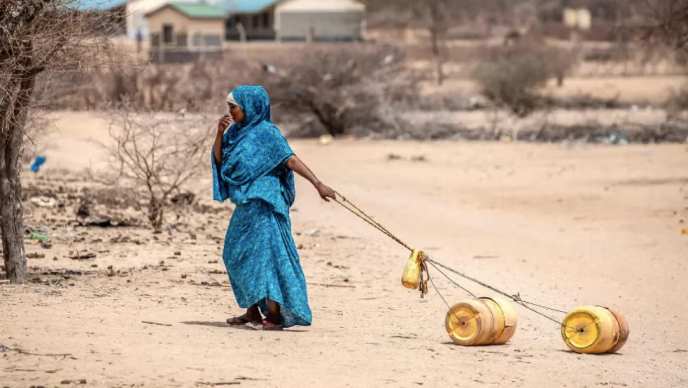A new study has found a troubling link between prolonged drought, shifting climate patterns, and a sharp increase in suicidal thoughts among women living in rural Kenya, revealing a growing mental health crisis driven by environmental instability.
The research, published by Science Direct on August 2nd, 2025, was led by Cyprian Mostert, an Assistant Professor at Aga Khan University, in collaboration with experts from the Brain and Mind Institute.
Drawing on data from 14,801 participants and meteorological records, the study uncovered a 28.7 percent rise in suicidal ideation among women in informal rural settlements during periods of reduced rainfall.
“There is a measurable connection between declining rainfall and increased psychological distress,” the study states, pointing to the devastating mental burden borne by women already grappling with poverty and limited support structures.
Droughts were found to trigger a 36.7 percent surge in suicidal thoughts, while extreme heat led to a 14.9 percent increase. The situation worsened when these climate shocks coincided with rising food prices a frequent outcome of crop failures and market disruptions with the prevalence of suicidal ideation among women spiking to 48.3 percent.
Mostert noted that these findings reflect a crisis often hidden from view. “Drought conditions and erratic rainfall create a persistent sense of despair, particularly for rural women responsible for feeding their families without steady access to income, food, or health care,” he said.
The research focused on Kilifi County’s Kaloleni and Rabai sub-counties some of the poorest and most climate-vulnerable regions in Kenya — where residents rely heavily on subsistence agriculture and informal work.
Chronic poverty, poor infrastructure, and limited access to clean water, education, and mental health care compound their vulnerability.
The authors warn that without urgent and targeted interventions; the mental health consequences of climate change will deepen. They urge the government to integrate mental health services into climate adaptation policies.
Proposed solutions include expanding community-based counselling, improving food security, and implementing income-generating programs tailored for drought-affected areas.
“The government must recognize that the mental health toll of climate change is just as critical as its environmental and economic impacts,” Mostert said.
As Kenya confronts the escalating effects of global warming, the study reinforces a crucial message: climate resilience must encompass mental well-being especially for women living at the margins of formal support systems.

